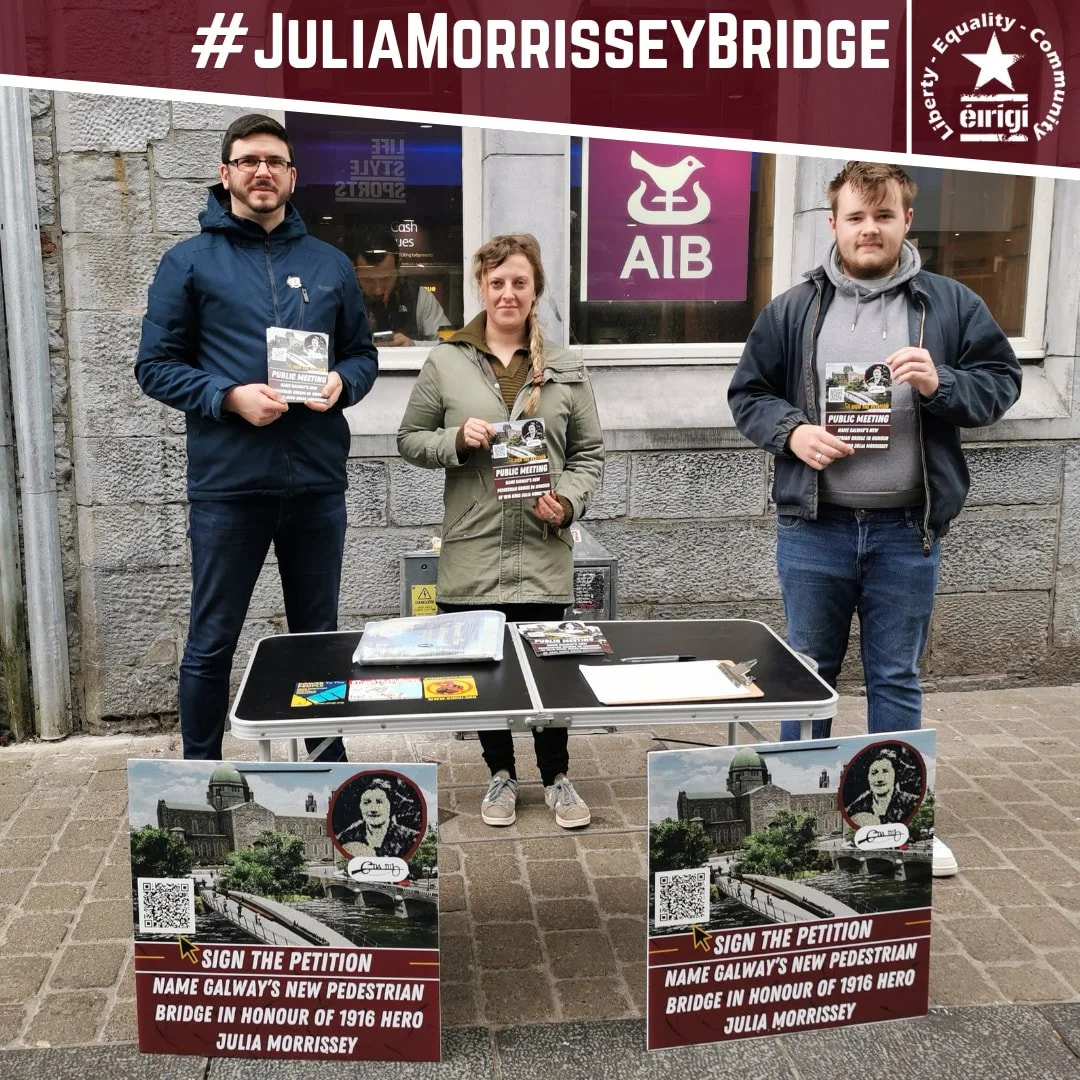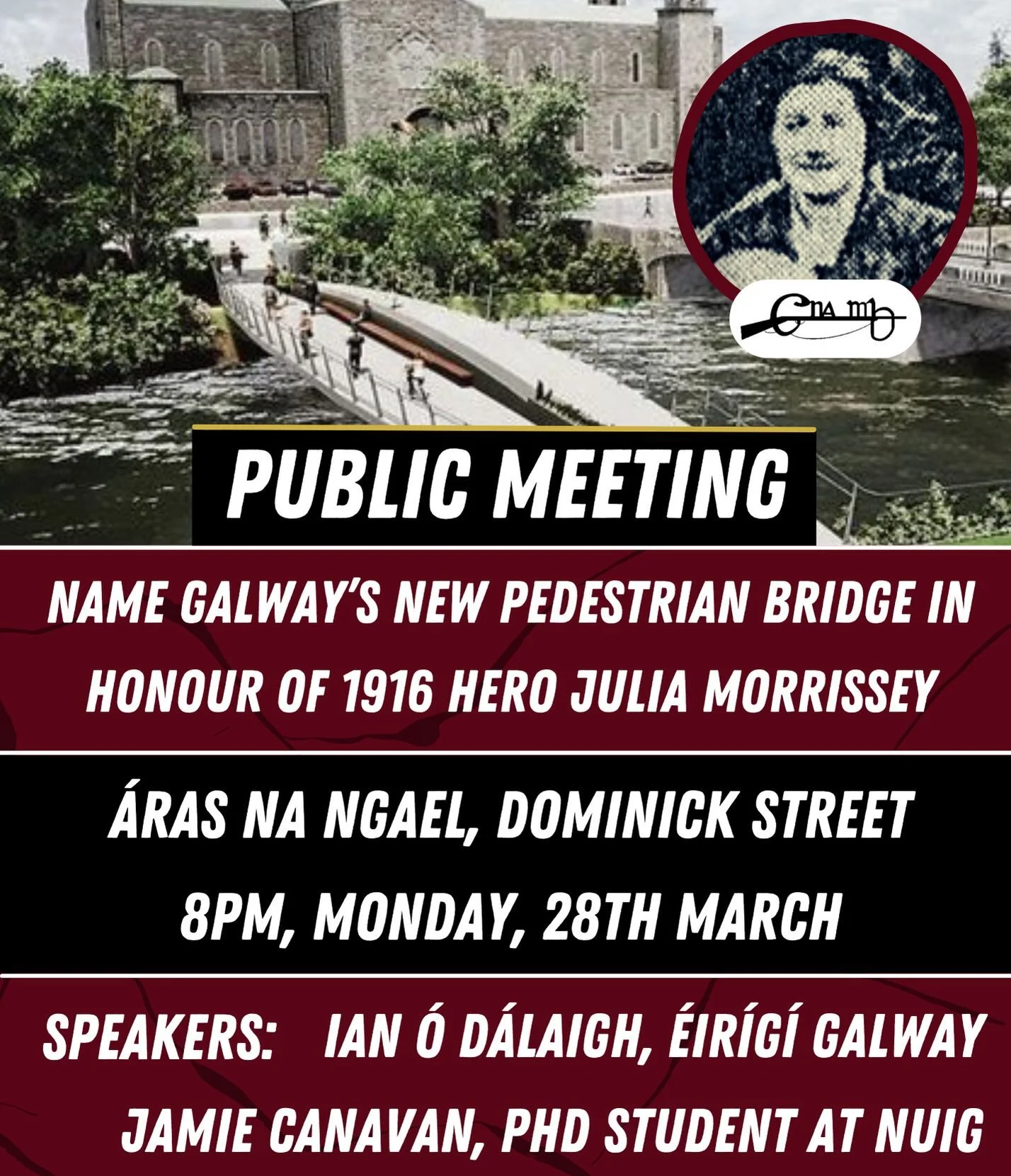Julia Morrissey Bridge Campaign - Public Meeting To Take Place On March 28th In Galway
Éirígí Galway have organised a public meeting to build support for the 'Julia Morrissey Bridge' campaign. The meeting will take place at 8pm in Áras na nGael, Dominick Street in Galway City on Monday 28th March. Almost 400 people have already signed the Julia Morrissey Bridge online petition.
The March 28th public meeting will be chaired by Éirígí’s Galway representative, Ian Ó Dálaigh who is spearheading the bridge naming campaign. Jamie Canavan, a PhD student conducting Irish Research Council supported research into foster care in 20th century Ireland, will also address the meeting.
Ian Ó Dálaigh (left) at Julia Morrissey Bridge petition stall in Galway City Centre.
Speaking from Galway, Ó Dálaigh said, “I’m inviting people from Galway and further afield to join us on Monday, 28th March to discuss our Julia Morrissey campaign. Morrissey was a Cumann na mBan commander during the Easter Rising here in Galway, but she has been largely forgotten by history since then. The same can be said of many Cumann na mBan members.
Many of those women stayed true to the radical republican ideal envisioned in both the 1916 Proclamation and the 1919 Democratic Programme. These documents clearly expressed the republican vision of an Ireland built on the principles of liberty and equality - where all citizens would be treated as equals regardless their gender, religion, ethnicity or any other false division.
The counter-revolution that followed the 1921 Treaty saw this revolutionary republican movement defeated. It's no coincidence that the membership of Cumann na mBan voted overwhelmingly to reject the Treaty. The handing of power to the capitalist class, big farmers, and the churches set back the cause of women's rights by decades in this state.
So it's no surprise that Julia Morrissey and many of her comrades have been effectively written out of history. The state that grew out of the victory of counter-revolutionary forces was a place that was incredibly hostile to women's rights.
At the public meeting Jamie Canavan, will give an overview of how the Twenty-Six county state treated women, how the movement for women's rights has advanced over the last few decades - and what needs to be done to see that movement succeed today.
So it promises to be a very informative night, and I would encourage anyone who can attend to do so. It's vitally important that we have these discussions in order to inform the building of a movement that will tackle - and end - all inequalities in Irish society today".



